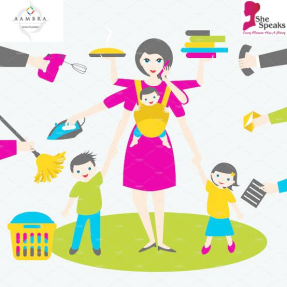Gendering Jobs- Gender Stereotypes and its Dangers
When we hear the word ‘nurse’, many of us might immediately imagine women. What is the cause of this assumption? Gender stereotypes seem to play a significant role in this process. These gender stereotypes are ingrained in us early in life and play a significant role in how we perceive ourselves and the world around us. These stereotypes, often, bring shame to those who do not strictly conform to these societal standards. While these gender stereotypes may seem harmless and unimportant, their pervasive nature cause a lot of problems in individuals’ private and professional lives. Certain characteristics are arbitrarily assigned to men and women and dictate what is suitable, appropriate and desirable for them based on their biological or perceived sex.
These gender stereotypes also influence jobs. Certain jobs are seen as more appropriate for men while others are considered more appropriate for women. These categorizations are based on specific qualities ascribed to men and women. However, gendering of jobs has a negative impact on everything from job application, selection to job satisfaction. They influence the chances that an individual would apply to a particular job, the chances that they get selected and also their chances of finding success in these fields. Jobs such as firefighter, nurse, teacher, etc., that have been around for longer are even more likely to be heavily gendered compared to newer jobs. To understand why this gendering of jobs is harmful, it is important to understand its effects.
Men in a women-dominated industry and women in a men-dominated industry are often subject to ridicule, prejudice and discrimination. Apart from this, majority of fields are associated with men and stereotypically male qualities. Studies show that a man in a managerial position is likely to be seen as having more authority by clients than a woman in the same position. This is because the qualities perceived to be necessary for a manager or an authority figure are associated to those seen traditionally as ‘male’ qualities. These societal biases lead to the undermining of woman’s authority and prowess, even when they are in the same position. It limits people from living up to their true potential and puts them in boxes.
Ideally, jobs should be given on the basis of the aptitude and abilities of the individual, irrespective of gender. However, when jobs are stereotyped with respect to gender, they further exacerbate sexist practices in the workplace such as glass ceiling and tokenism. Evaluating capable individuals on the basis of random and outdated gender stereotypes is criminal and puts us several steps back in our efforts to destroy patriarchy and sexism, especially in the employment sector. Gender stereotyping jobs is harmful to men and women. While women are held back from advancements in their careers and put off from entering certain fields in spite of having the abilities for it, men also face issues when performing jobs or roles considered to be ‘feminine’. Men in women-dominated fields are rare and often shamed and have their roles and contributions side-lined.
A majority of the unpaid work such as home-making falls on the shoulders of women. Taking care of the home and children is widely seen as a woman’s job. Most women are forced to limit themselves to doing such unpaid or underpaid jobs as even when they get jobs in male-dominated fields, they face sexism and lower pay and benefits than men in similar positions. This shows that the gendering of jobs has a negative impact even in the personal lives of women, forcing them to carry the burden of much of the unpaid labour that tends to go unacknowledged.
This process of assigning a gender to a job takes away from its credibility. A 2017 study showed that all it took to assign a gender to an occupation was the first interaction. If an individual interacted with a female loan manager first then they were likely to remain noncompliant even when switched to a male loan manager. However, if their first interaction with a loan manager was with a man, reports showed that they were more likely to be compliant. This focus on man as the sole breadwinner of the family has caused any field that requires highly specialized skills or is high-paying to be considered a man’s work. This is discouraging and discriminatory to women that have the same qualifications and also discourages men from stepping into fields that aren’t considered very ‘macho’.
It is very important to address this issue due to its pervasive nature and its effects on all. The only way to remove this gendering of jobs is to stop viewing female-dominated fields as less credible or less important. Additionally, it is high time that we abolish such arbitrary associations as a whole and give more importance to abilities and aptitude. At a time when the world is working hard to inculcate positive change and become a more inclusive place for all, irrespective of sex, gender and sexual orientation, ascribing gender to jobs is highly limiting, backward and archaic. The newer generations must band together to challenge these outdated beliefs and banish them from our society.




